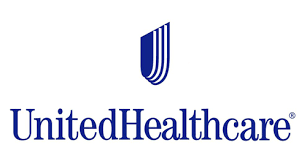Earlier this week, UnitedHealthcare (UHC) informed the world that their financial losses from the Affordable Care Act (ACA) health insurance exchange marketplace were huge and they are scaling back. UHC is one of the largest participants in the exchanges but will be remaining in just a handful of states next year. The losses expected, according to CEO Stephen Hemsley, are expected to exceed $1 billion for this year and last year from their exchange business. This is just one indicator that the Obamacare marketplace is unstable.
The ACA marketplaces represents one of the key foundations in rolling out health insurance coverage to all Americans. Yet, they raised the risk for insurance companies participating in them. One study conducted by Blue Cross and Blue Shield revealed that new enrollees under the ACA have higher rates of hypertension, diabetes, HIV, ASVD, depression and other chronic diseases.
UHC entered the marketplace cautiously and expanded to its current status of covering 39 states and over 700,000 patients. However, it reported that they should know by November whether they will even participate in 2017. Already, a dozen nonprofit companies bailed out and other companies are reporting losses in the millions.
The instability in the marketplace will be further shaken as UHC draws back, especially as other large insurances are experiencing huge losses. We can expect others to follow the same course. People will be left with a tax penalty and no choice but to pay it. They will have less and fewer options until they just start to withdraw as well.
The ACA marketplace stands no chance of any degree of success when there is no competition. As it is, only a few major players participated and offered only a few derivatives of similar plans. The new enrollees were shepherded into these substandard offerings. Now these offerings will be even fewer. And the risk higher for these companies.
Why is the marketplace unstable?
As demonstrated by UHC’s gradual withdrawal, insurance companies are losing money, and large amounts of it. These are big for-profit companies. They were established and run to make money.
Patients were not given very many options. Most of them ended up with high-deductible plans that they cannot afford. Many are choosing to continue forgoing healthcare coverage and accepting to pay the tax penalty.
The healthcare system is broken and has been for many years. Rearranging the existing failing system was bound to fail. No new innovation was introduced, only forced servitude to mediocrity.
The premise of the ACA was faulty from the start. Aiming to reduce healthcare costs by reducing the uninsured was doomed from the beginning. The uninsured were only part of the problem. A bigger problem was the cost of useless bureaucracy. Now we have less uninsured but more bureaucracy and we see the money drain that opened up.
Insurance companies jumped in the marketplace to make profits. They were never going to make profits and they can’t operate under the marketplace in the same fashion as they do with their commercial products.
Patients are becoming dissatisfied. They are paying premiums and not getting the services they need.
Politicians devised how the ACA would work. Real experts are needed here, not those striving for partisan support.
True, we now have less uninsured patients but we also have more instability. The ACA did nothing to get rid of the problem of medical bankruptcy, which still is the leading cause of all bankruptcy in the U.S. And we still have unaffordable care for many and this is leading to disparities in care. If we continue on this same path, medicine will be only available for the élite. People talk about a two-tier system but I disagree. We will have a tier for those who can afford it and the rest will be left on their own.
As we watch UHC slipping out of the marketplace, we need to take action. The instability was present from the onset, but we are now headed to chaos. Patients lives are at stake here. It is unacceptable to politicize our healthcare. We need real reform before it is too late.
 Copyright secured by Digiprove © 2016 Linda Girgis, MD, FAAFP
Copyright secured by Digiprove © 2016 Linda Girgis, MD, FAAFP


